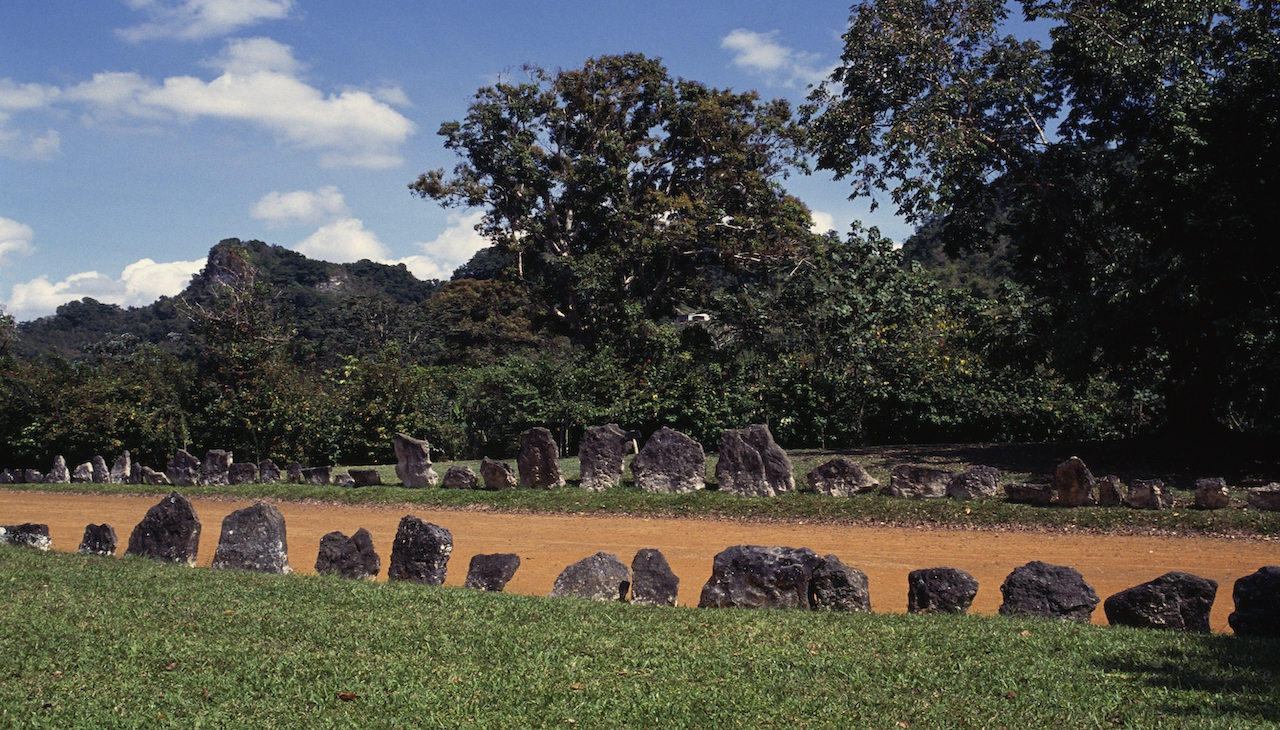
A sacred Taíno site in Puerto Rico threatened by privatization
The Caguana Ceremonial Ball Courts in Puerto Rico, a sacred Taíno site, is being threatened by a transfer of ownership and privatization.
The Caguana Ceremonial Ball Courts site in Puerto Rico is a sacred Taíno site. The Taíno — Puerto Rico’s Indigenous group — constructed and built the site between 1200 and 1500 AD.
Now, Puerto Rico’s Senate prepares to vote on a joint resolution which threatens to privatize the site.
The site was constructed from stone-lined ball courts. The courts are believed to have been used to play batey.
The game batey is said to have originated in Mesoamerica. The game was believed to have been played in Cuba, Jamaica, the Bahamas, the Virgin Islands, and Hispaniola.
The game is believed to have been played as such: with two teams of equal numbers tossing a ball between each other. Another party would be on standby for further observations.
The sacred Ceremonial Ball Court site is believed to have served as a venue for ceremonial dances, religious rituals, and other gatherings, too.
Indoors at the site, a small museum is maintained. The museum houses Taíno artifacts, archaeological exhibits, and a botanical exhibiting plants which the Taínos harvested for food.
{"preview_thumbnail":"/sites/default/files/styles/video_embed_wysiwyg_preview/public/video_thumbnails/GtDglzGnQJg.jpg?itok=xGlHlw1t","video_url":"https://www.youtube.com/watch?v=GtDglzGnQJg","settings":{"responsive":1,"width":"854","height":"480","autoplay":1},"settings_summary":["Embedded Video (Responsive, autoplaying)."]}
With the Indigenous land privatized, the Caguana Ceremonial Ball Courts would likely face a transfer of ownership.
RELATED CONTENT
The Institute of Puerto Rican Culture and other individuals shared their disapproval of the bill. Many continued to voice their concerns before the senate vote, which took place this Tuesday.
The site has been under the ownership of the Institute of Puerto Rican Culture since 1955. They began restoring and preserving the site thereafter.
While the future of the site appeared yet to be decided, the resolution claims the pursuit is based on an interest in economic development:
“The actions that it deems necessary and agreeable to reach [the site’s] maximum potential use for the sake of the economic development of the region and its municipality,” reads the resolution.
Pursuing the site for privatized economic development shows an intent to further monetize the land under means the Institute of Puerto Rican Culture had not been undergoing.
The prospect threatens new management for the site from the mindset of a budding business and not a historical landmark.











LEAVE A COMMENT: